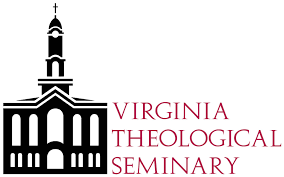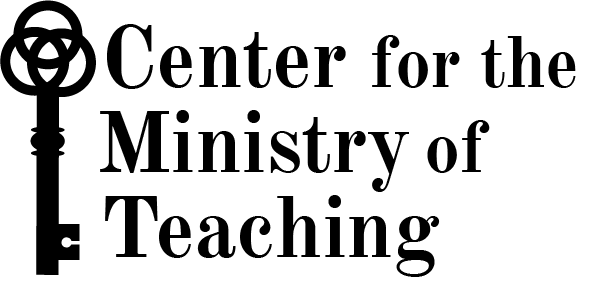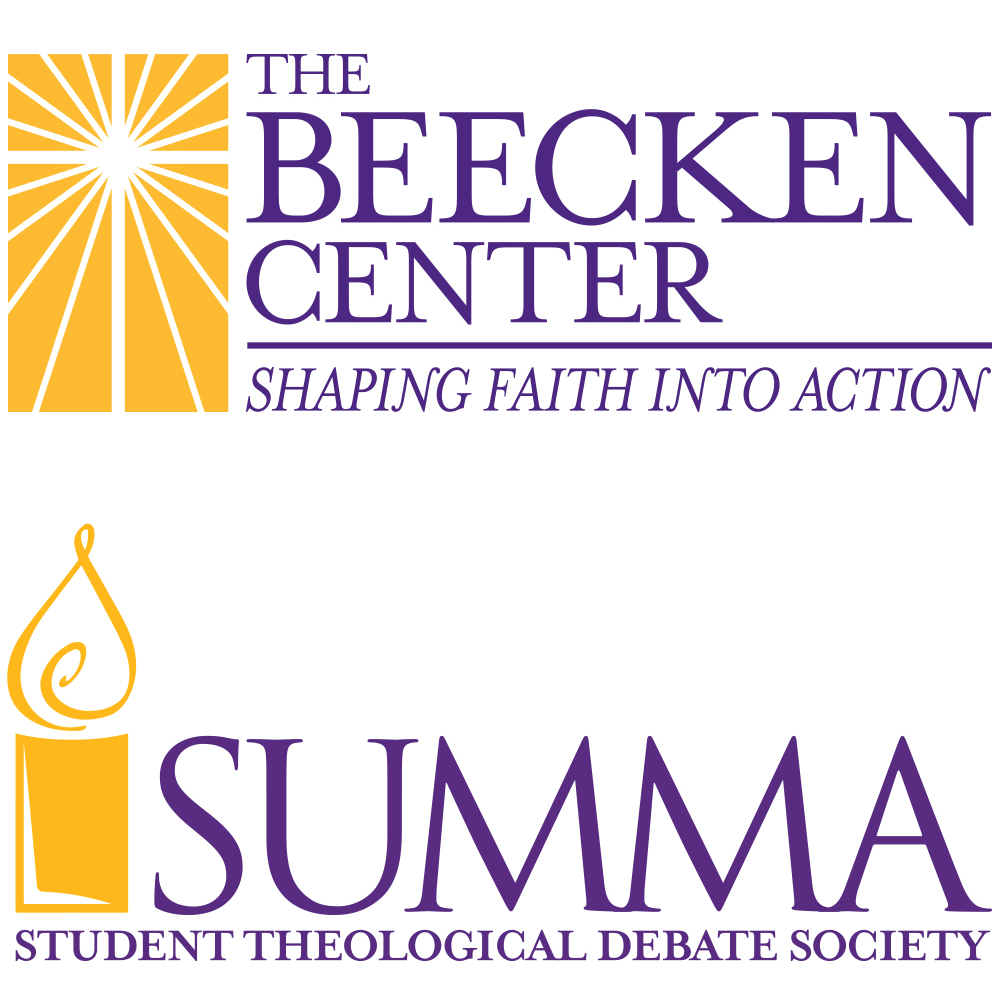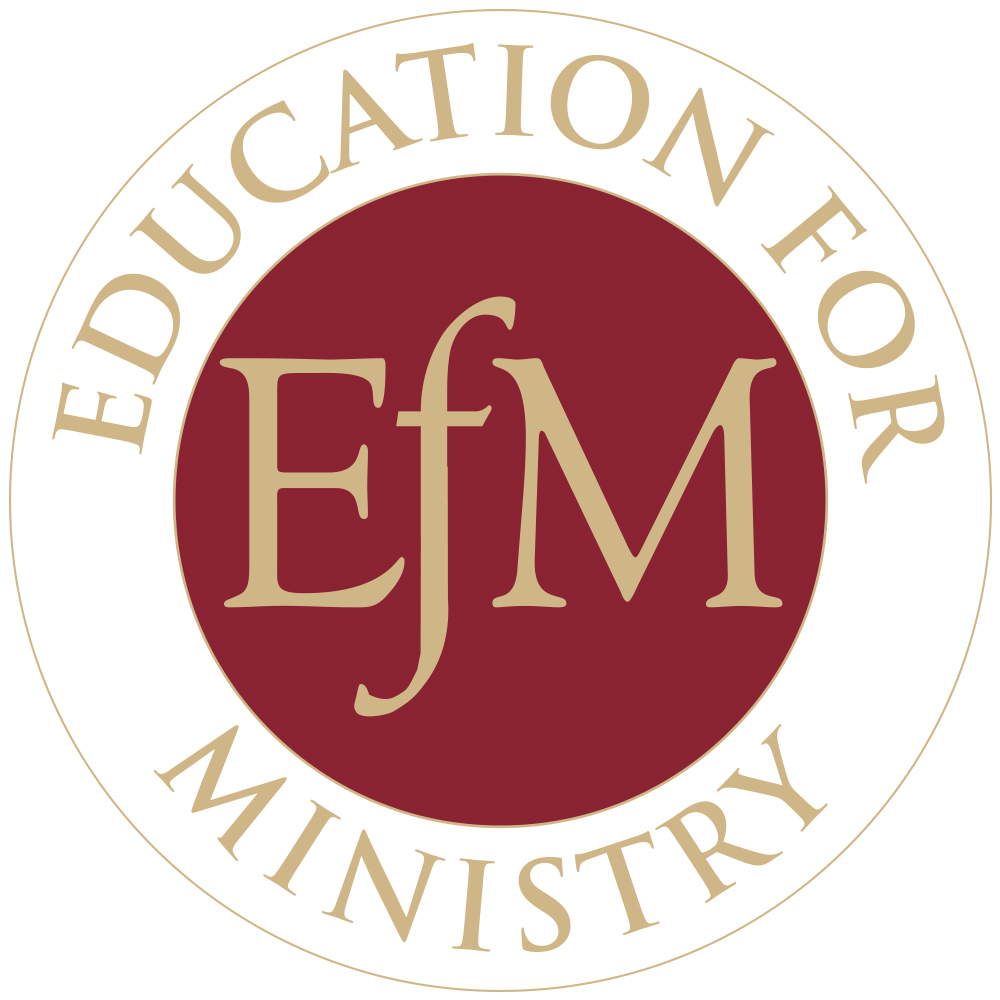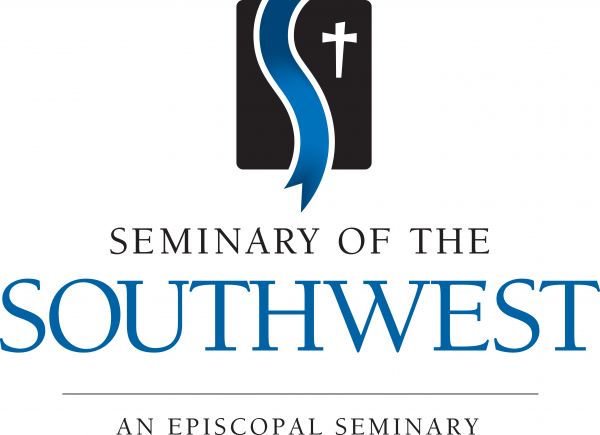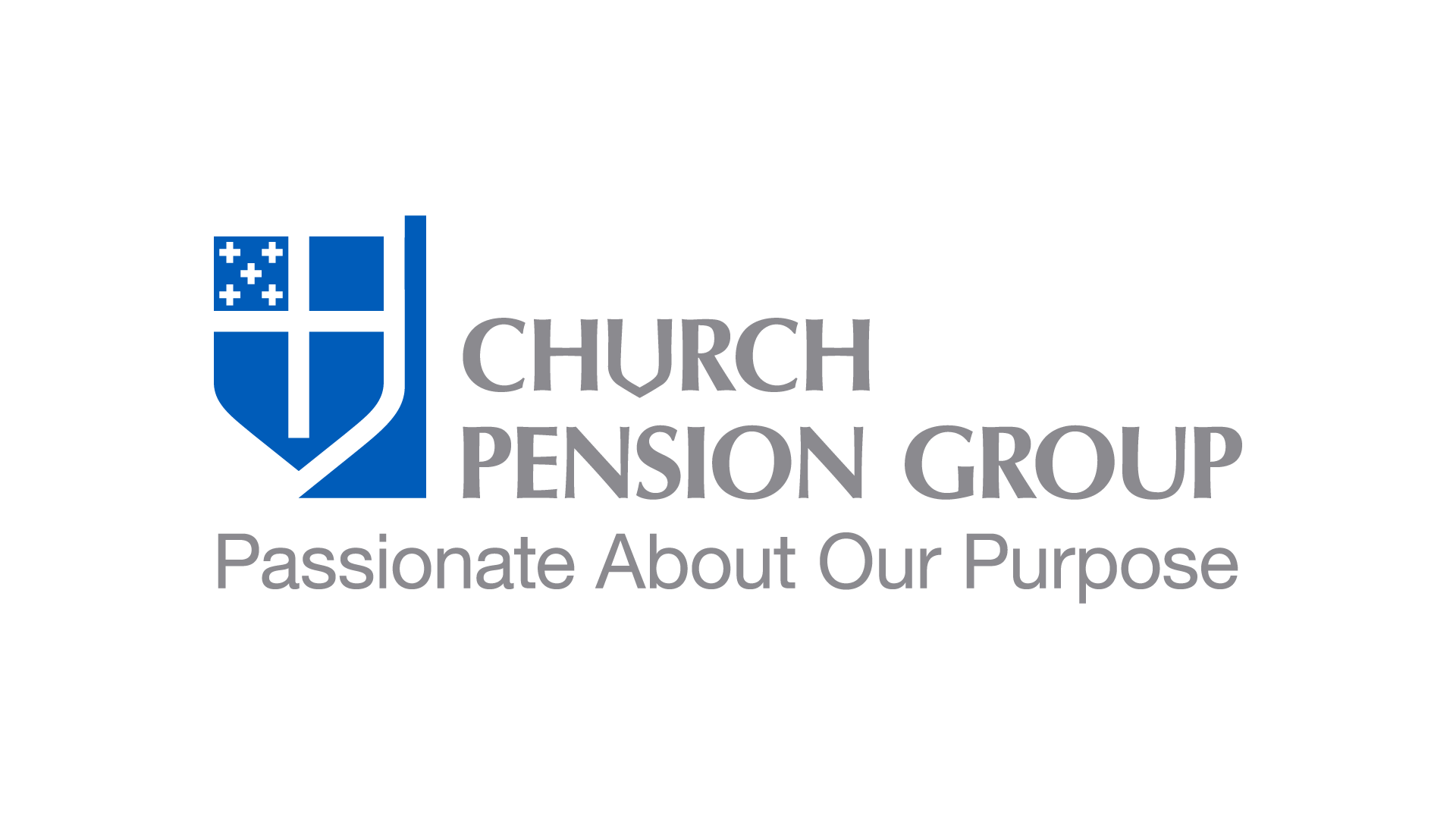2019 Workshop Lineup - Indianapolis
A foundation of the annual Forma conference is excellent workshops that support our membership with continuing education to ensure vocational excellence. We are proud to announce the lineup of workshops for 2019:
Forma Workshops 2019
CHILDREN’S FORMATION
Making Children's Chapel Come Alive
Children's Chapel can be a wonderful opportunity to teach children the rhythm and flow of our Episcopal liturgy. Such environments can offer child-friendly language and help children have an experience of praise, proclamation, and prayer that creatively engages them. Interactive worship in these settings can share practices of faith like meditation, different forms of prayer, and opportunities to see the sacred in the ordinary. Hearing scripture in ways that connect with them can include discovering the gifts of the Holy Spirit in children's literature. Explore the possibilities that exist in this sacred time with children. #children #liturgy
Kat Mercer has more than thirty years’ experience in faith formation leadership. She has worked with programs for children, youth, families and adults at the congregational, diocesan and provincial level, and is an enthusiastic advocate for intergenerational formation and supporting families in faith formation at home. Kat has a passion for the liturgy of the Episcopal church, which is reflected in the worship experiences she creates in Children’s Chapel settings. Kat completed the Certificate in Leadership in Lifelong Christian Formation in 2018 and is a member of the first cohort of Godly Play Missioners. Currently Kat serves as Chaplain at St. Luke’s Nursing Center, a ministry of Grace Episcopal Church in Carthage, MO, where she incorporates Godly Play into her ministry, and provides consultation and support in children’s ministry for congregations.
Family Table: Liturgies for Families with Young Children
Learn about the Family Table (a 35-minute service at St. Thomas’ Church, Whitemarsh/Fort Washington, PA) geared for families with young children and a few other examples of liturgies that include age-appropriate, tactile, experiential, and paperless components that change with each liturgical season. Explore how portions of the liturgy can become more incarnational and sensory for worshippers just learning how to read. Receive ideas for how to create this type of liturgy in your home church and leave with a deeper knowledge of how space, liturgical piety, prayer book rubrics, staffing, and diocesan canons on worship inform varying approaches.
Liz Costello has helped three parishes craft services geared for families with young children over the last five years of her ordained ministry. All of these churches varied in size, space, resources, piety, and ASA (St. Thomas’ Church, Whitemarsh, PA; Christ Church, Ridgewood, NJ; and St. John’s Cathedral, Denver, CO). She brings nine years of lay and ordained ministry working in formation for all ages as well as a Master of Sacred Theology in liturgy from Yale Divinity School.
Affirming and Building the Spiritual Lives of Children
Noting increasing levels of anxiety and depression, multiple reports are raising concerns about the psychological health of younger and younger children. Long term support of the spirituality of children yields impressive benefits throughout their lives while conversely, a lack of spiritual nourishment is one predictor of later difficulties. As teachers and parents of children, how comfortable are we praying, reflecting, or sitting in silence with children? Are we more comfortable with entertaining stories, craft projects, and fun games even though the research shows that we must deepen our interaction with children? Consider how our churches can affirm the reality of children’s spiritual lives and how such inner life develops from ages 3 to 12. Review multiple resources—primarily from within the Christian tradition— for spiritual support of children and the adults who work with them within the church and the wider community. We can work together to find vocabulary to help those outside the church (the “spiritual, not religious” families) understand the ways we can help them as they address their children’s spiritual needs. #children #spirituality #evangelism
Catherine Powell has experience with children and their families including leading camps and conferences in three dioceses, writing curriculum for Living the Good News, serving as chaplain to the National Cathedral School in Washington, DC for 13 years and as early childhood chaplain to Washington Episcopal School for two years. She has extensive training in the Catechesis of the Good Shepherd, consultation with congregations using Godly Play, Board membership of The Center for Children and Theology, and more than twenty years in parishes big and small.
The Development of Children and Youth: Physiologically, Spiritually, and Socially
This workshop will share three 15 minute presentation on some of the the most important material from the Forma Certificate program in Children and Youth Ministry: Engaging the Bible with Children in Youth with Victoria Garvey; Thanking volunteers in your ministry with Meredith Scott; Teenage body and brain development and why it is important to formation ministry with Randall Curtis. Each section will offer resources and solutions that you can take back to your ministry. After the three presentations, a time of question and response will open up and the faculty members will be available to speak with your further. #children #youth #families #formation 101
Leaders: Vicki Garvey has a passion for learning and teaching, and unsurprisingly, for the Church. In her professional career she has taught at nearly every level from 2nd graders through graduate school, but she has spent most of that teaching time at Seabury-Western Episcopal Seminary, where she taught biblical languages and biblical theology, her doctoral area. Vickie served at the Diocese of Chicago’s Bishop’s Associate for Lifelong Christian Formation. These days, she serves on two faculties for the wider church, consults with a couple of dioceses concerning congregational vitality and continues to speak, facilitate workshops and lead retreats. Meredith Scott is Director of Youth Ministry, Holy Trinity Episcopal Church, Greensboro, North Carolina. She specializes in building “Volunteer Hearts.” By leading youth through volunteer/leadership programs, she walks with them on their spiritual journey as they create a foundation that finds great joy and peace in serving others, living as Christ lived. Meredith leads annual pilgrimages for youth and adults, as well as an annual mission trip. Randall Curtis is the Evangelist and Ministry Developer for Young Adults and Youth and in the Episcopal Church in Arkansas. Randall’s focus with the Certificate program is program development, marketing your ministry, communication and peer discipleship with teenagers and young adults. He also coordinates the online platform as well as the acceptance process.Randall is also the holy geek at Theholygeek.com.
Evangelism To and With Teenagers
Explore the Church’s relationship to young people (to Gen Z and Millennials) as a disenfranchised demographic and learn how to speak to the actual stated needs of these young people rather than just say what we think they want to hear. Focusing on discerning/excavating that deep longing in the lives of teens and their parents and learning how to speak directly to that need, this workshop will place the work of evangelism on the direct relationship with teenagers and their parents. We will also flip the script and ask how it is that teens can evangelize their experiences of church to the grown-ups and also to their peers. #youth #young adults #family ministry
Leader: Ethan Lowery is a trainer with the College for Congregational Development and has served as a youth minister in the suburbs of the San Francisco Bay Area for the past three years. He is a postulant in the Diocese of California, a seminarian at CDSP in Berkeley (MDiv, c/o 2020), and a church consultant in the Bay Area.
Structuring Conversations with Youth around Racial Healing: Why and Where to Start?
Talking about race with youth is a necessary conversation, but to do it well, an intentional framework and practical tools are helpful. This workshop will talk about the importance of having conversations around race with youth, provide an overview of a structure within which to have those conversations, and provide some practical tools and resources for taking the next steps in having those conversations with youth in our ministry contexts. We’ll also think through together some of the workshop participants’ contexts and how those conversations might be introduced most effectively. #youth #racial healing and reconciliation
Leaders: Katie McRee and Sally Ulrey are co-authors of Dismantling Racism Youth Curriculum, created in collaboration with the Absalom Jones Center for Racial Healing and the Office of Youth Ministry in the Diocese of Atlanta. After earning her degree in Family, Youth, and Community Sciences from the University of Florida, Katie worked in full time parish youth ministry for almost 14 years. Katie is also a consultant for Ministry Architects. After receiving her degree in Christian Education/Youth Ministry and a minor in Counseling Psychology, Sally has worked professionally as a parish youth minister since 2003, and has been a trainer and consultant for various youth ministry-related events. Sally and Katie recently partnered to form “Adventures in Youth Ministry” which provides support to parish youth ministries through training and custom-made youth ministry experiences.
YOUTH ADULT & ADULT FORMATION
Discernment: Not a Yes or No Question
Our churches are filled with lay people who think “discernment” is only for those who want to become a priest. But the work of discernment is for everyone – as we discern our gifts, our calling, our vocations, or even discern how to make big decisions in our lives. Lay folks can and should help each other in figuring out and supporting the different callings that are in the church. Explore some different resources, methods, and frameworks for helping local churches build up their local ministry through supporting the God-given gifts of their members. We will also learn from the wisdom of the group in lifting up the calling of the laity. #young adults #adults #evangelism
Leaders: Amy Cook is the Working Group Head for Faith Formation in the Diocese of California where she creates resources and trainings for adult learners, works with the college chaplaincies, is redesigning curricula with the School for Deacons, and works with the Commission on Ministry in designing formation and process materials for those in discernment. Ian Lasch is the rector of Grace Episcopal Church in Jefferson City, MO, in the Diocese of Missouri. He serves on the Diocesan Board of Examining Chaplains and the Diocesan Baptism Task Force, and is emphatic about the importance of discernment and formation in the life of the Church, for the benefit of the Body of Christ and all its members.
Redeeming Dementia
How can dementia, which is so frightening and debilitating, also be redeeming? Over 47 million people in the world have Alzheimer’s disease and related dementias, with nearly 10 million new cases each year. In the U.S. about 70 percent are living at home and most have mild to moderate dementia. You probably see them every day and don’t realize it. They are in our congregations. Explore the relationship between ministry and the theology of personhood, the science of dementia, and the spirituality of older people with dementia and their caregivers. What do we understand about the stages of brain disease that cause dementia? Does dementia diminish the identity of a person of faith? How can churches and other institutions respond to the increasing need for ministry to people with dementia and their caregivers? Accept the challenge to find new ways of knowing God by embracing the “self” of all people, especially those who have dementia. #older adults #seniors #pastoral care #liturgy
Leaders: Dorothy Linthicum has studied and taught courses and workshops about older adult spirituality and ministry at the Virginia Theological Seminary, conferences, and diocesan events. A contributor of chapters about older adults for The Seasons of Adult Formation and a special issue of “Lifelong Faith Journal,” she has become a known expert on the spirituality of older adults. Janice Hicks is a chaplain and recently permanent deacon. She received a Ph.D. in chemistry from Columbia University and worked as a professor of chemistry at Georgetown University and then at the National Science Foundation. Dorothy’s and Janice’s book Redeeming Dementia: Spirituality, Theology, Science (Church Publishing) was published in November 2018.
Let’s Talk About Sex So We Can Talk About Something Else
Due to many factors including divorce, widowhood, postponing marriage, and intentional single-hood, more and more adults are having intimate relations outside of the context of covenant. Our kids want to know “what counts” and our young adults want to know what doesn’t. Why can’t we talk directly: Who should be having it? Enjoying it? Who shouldn’t? Do we, the church, actually have any “rules” about this? Why are we, the church, even talking about it, and what does this have to do with proclaiming the Gospel? With publications like “These Are Our Bodies” and “For Goodness Sake,” and movements like The Kaleidoscope and OMGYES, the conversation is moving forward, getting much of the plumbing and expectations out into the light of day, so we can talk about why that matters. About wellness, wholeness, and personhood in-and-out of the context of relationships. Come and explore together how we can start with liberating ourselves (no you don’t need to bring a mirror) and look at models for encouraging others to do so as well. Let’s talk about the roles of both privacy and community in sexuality. We can be reconciled within these conversations, not just for our own sake, perhaps not even for our own sake, but so that we can be reconcilers in the world. Let’s talk about that. #young adult #adult #human sexuality #evangelism #youth
Leader: Heidi J.A. Carter is the new Lay Minister Associate to the Rector at St. Paul's Episcopal Church in Kansas City Missouri, and co-author of the Young Adult Module of These Are Our Bodies. She has also been a consultant and trainer with LeaderResources, primarily around issues of Staffing, Adult Formation, and The Journey To Adulthood Parish Program of Spiritual Formation for over twenty years.
INTERGENERATIONAL FORMATION
Using Hands, Forming Hearts: Experiential Worship
Explore the role of experiential worship and liturgy in the context of faith formation. Experience how to set up experiential prayer stations, an overview of the contexts in which prayer stations can be used, and then engage with prayer stations around the workshop space. After experiencing the stations, reflect on your engagement with the stations by discussing and discerning how you can use these stations in your own ministry context. Leave with a list of resources to take home to craft experiential worship in your own setting. #intergenerational #children #youth #adults #liturgy
Leader: Victoria Hoppes is the Camp Director at Waycross Camp and Conference Center and the Coordinator of Ministries With and For Youth for the Diocese of Indianapolis. She holds a B.A. in Dramatic Media and Theology from Texas Lutheran University and an M.A. in Children, Youth, and Family Ministry from Luther Seminary. She also holds a certificate in Youth and Family Ministry from Forma's certificate program. She lives in Bloomington, Indiana with her cat Toby and enjoys reading, baking, binge-watching comedy on Netflix and travelling. Visit her website for ministry musings and to see a portfolio of her work: www.ministryincontext.com.
Revitalize, Refresh, Infuse: Integrated Formational Ministry
Many times we believe that to have a successful formation program we need more classes, more time, and more money. Those things may create a variety of opportunities for people but they are not necessarily a standard of success. You congregation has everything you need, right now, to form one another in Christ's likeness. Even small parishes that are challenged with a small budget and small amount of staff/volunteer time can provide formation opportunities. Learn how to adopt an integrated formation approach that takes what you are already doing and infuses it with formational practices. Through an inventory of your ministries and needs, you can refresh and revitalize your ministry. Analyze something what you and your congregation are already engaged with and make it a full formational experience. #children #youth #adult #intergenerational #liturgy
Leader: Hannah Graham has served Episcopal parish communities in in a variety of Christian Formation roles for 15 years. A gifted Godly Play storyteller and youth mentor, Hannah utilizes her knowledge of child and adolescent faith development in the classroom, and also in executing big picture planning shaping Christian community. Hannah has led the Education for Ministry Program as a trained mentored for 4 years, and regularly contributes to Diocesan events, camps, retreats, and committee work. She is recognized for her innovative use of social media to integrate liturgical seasons, parish programs, music, faith at home activities and outreach. In addition to the spiritual formation of St. Andrew's Episcopal Church in Glenwood, MD, Hannah devotes herself to growing in faith as a beloved child of God, wife and mother of three boys, ages 7 months-5 years old.
Sing a New Church: Modern Songs for Meaningful Worship
Get equipped with practical resources, tools ,and insights to engage your community in some of the best contemporary and multicultural music and song across generations, skill levels, and congregation size. Focus on music that fosters a culture of hospitality, accessibility, and participation among newcomers, young people, and lifelong Episcopalians alike. Drawing on a diverse range of material (contemporary, Gospel, Taizé, Iona, paperless, multicultural) come sing, improvise song, and receive a packet of free additional resources and links that will assist any youth director, children’s minister, or adult formation begin engaging their communities in song that is applicable to small groups, retreats, VBS, and Sunday worship alike. Come be renewed as we “sing to the Lord a new song!” #intergenerational #music #liturgy #evangelism
Leader: Zack Nyein is the Associate Rector for Evangelism and Children and Youth Formation at All Saints' Atlanta and the former Director of Worship and Music at Tyson House Episcopal-Lutheran Campus Ministry in Knoxville, TN. A trained music educator and composer, he planted Project Canterbury Campus Ministry in Chattanooga, TN and developed ancient-future worship experience. He founded Table-on-the-Green Dinner Church, drawing extensively on resources from “Music that Makes Community” and as a Yale Divinity School chapel minister. A liturgist and musician for Genesis Episcopal Church Planting Conferences, he was a leader for Contemplative Worship Workshop at EYE 2017, conference leader for the "Reimagining Church" series in the Diocese of Southern Ohio, and an EYE Music Team Member in 2008. Zack currently serves the Task Force for Prayer Book and Liturgical Revision established by the 2018 General Convention.
LITURGY
The Way of Light and Shape of Joy: The Liturgical Shape of Easter and Pentecost
The Stations of the Resurrection (the Via Lucis, the Way of Light), is a set of 15 stations that move participants through the resurrection appearances, the spread of the Gospel, and the outpouring of the Holy Spirit at Pentecost. Intentionally interactive, participants will taste and see through a communal experience of the Stations (abbreviated) of the Resurrection. Then, gathering at nightfall on the Eve of Pentecost, the Easter Nave transforms. Resplendent in red, filled with light and life, the gathered congregation participates in a liturgy recounting the mighty acts of God in the first years of the church. All are a sensory work. Aiming to be collaborative, participants will be encouraged to brainstorm ideas and suggestions that may work in their own settings after having experienced liturgy as a work and offering to God. #liturgy #intergenerational
Leader: Angela Compton Nelson is the Minister of Christian Education and Youth at the Church of the Holy Family in Chapel Hill, North Carolina. She is an ordained Elder in the Church of the Nazarene. Angela oversees the Christian formation of young people at Holy Family beginning with the baby and toddler nurseries and through high school. She oversees formation for students and their families in Sunday School, at-home faith formation, Confirmation, Acolytes, all-parish events in various seasons, Episcopal Youth Community (EYC), and Vacation Bible School in the summer.
Acolyting as Formation
Despite the changing landscape of the Episcopal Church in membership, one ministry that continues but gets little attention is the ministry of the acolyte. Discover a new model for "forming" acolytes to understand their role as a leader of liturgy while engaging them in experiential learning about why we do what we do during worship (including before and after). Whether they are second graders or adults (but typically youth), learn ideas of how mentoring and training acolytes can be powerful and transformative. Learn some acolyte games, what an acolyte festival might look like, and how to build on Bishop Curry’s "The Way of Love" initiative in your acolyte ministry. #liturgy #children #youth
Leader: Sharon Ely Pearson is a Christian formation specialist, author, and editor with Church Publishing Incorporated. A mentor / trainer of acolytes in her home congregation in Wilton, CT, she was one of the first female acolytes in the Episcopal Church in Connecticut when women were first “allowed” to serve at God’s altar many, many years ago. And she still dons a red surplice on occasion to serve alongside an acolyte-in-training.
To Everything There is a Season: At Home with the Liturgical Year
Making connections between the communal celebration of liturgy and faith life in the homes of families, couples, and individuals is crucial. The seasons of the church year can be celebrated in homes to engage all ages and life stages in forming deeper connection and meaning to the seasons of Advent, Christmas, Epiphany, Lent, Easter, and Pentecost. Learn how to creating “Faith at Home” kits for these seasons along with an intergenerational whole congregation festival for each season. See samples from several kits and seasonal festivals including the very popular “Advent around the World Festival” that drew rave reviews after its debut in 2017. #intergenerational #faith at home #family ministry #liturgy
Leader: Sue Van Oss has been a Christian Formation minister for over 30 years and is presently Director of Christian Formation at St. Paul’s Episcopal Church in Duluth, MN. At St. Paul’s she has transitioned the congregation from a traditional “Sunday School” approach to a very successful model which centers on intergenerational ministry, midweek faith formation (which has resulted in significant increases in attendance) and bringing the seasons of the church year into the homes of the congregation. She received her Master’s Degree in Pastoral Studies from Loyola University, Chicago.
EVANGELISM
Why is it So Hard to Talk about Faith?
Evangelism is a commandment from Christ, yet Episcopalians often find the idea threatening and off-putting. Explore the reasons why speaking about faith seems to be so hard, including the difference between coercion -- which many people believe evangelism is -- and conversation, which is simply people engaging with one another as normal, friendly, curious human beings. Experiment with some easy, non-threatening ways to try on talking about faith. Small group conversation and one-on-ones help unlock the words we need to share our stories. #evangelism #youth #young adults #adults
Leader: Kit Carlson is the rector of All Saints Episcopal Church-East Lansing, MI, and author of the recently-published "Speaking Our Faith: Equipping the Next Generations to Tell the Old, Old Story" (Church Publishing). Based on her research with people under 40 in her congregation she developed a way to use intimate, small group conversations to help people better articulate their faith.
Social Justice as Evangelism: A Model for Children and Youth
Children and youth are hungry to do more and believe they can change the world. Learn how St. Thomas the Apostle Episcopal Church has successfully developed a continuum of education and experiences that lead children from initial exposure to the needs of the communities that surround them to deep hands-on and personal engagement with individuals experiencing need.
Enable your young people to not only make a difference in their communities but to see that working for justice is simply what we do as Christians. Information and discussion of service project ideas for Sunday School and families, as well as sharing of the highly successful Reaching Out to the Community (R.O.T.C.) camps and the new “Giving Project” Sunday Christian Education curriculum for high school students. #children #youth #evangelism #outreach
Leaders: Barbara McCall, Director of Children and Families and Kelly Demo, Associate Rector at St. Thomas the Apostle Episcopal Church in the Diocese of Kansas. Barbara is a 15-year veteran primary school educator with a Master of Arts in Education from Baker University who enjoys expanding her experiences in developing and implementing Christian Education programming and experiences for children. Kelly has worked in youth ministries for most of her 21 years of ordained ministry, serving as diocesan coordinator for both Kansas and Arkansas as well as several churches. She has developed curriculum and youth programs one of which, “Miqra”, has been published by Leader Resources and is used in several diocese around the country.
Where Are All the Young People?
Discover and unpack the congregational research conducted by the Fuller Youth Institute that examined over 250 congregations across the nation that have experienced spiritual, emotional, missional, and numerical growth. The research culminates in the book, Growing Young, which shares practical ideas on how ministry leaders can position their churches so that they may reach younger generations in a way that breathes life into the entire church while shifting the overall culture. Learn how you can tap into the research so it can impact the youth in your congregation as well as local community. #youth #evangelism
Leader: Jamie Martin-Currie is the Missioner for Christian Formation at the Episcopal Diocese of Texas where she develops new children, youth, and family ministers, oversees the diocesan youth ministry, and trains consultants to assess ministries in congregations. Before joining the Diocese, Jamie led the children’s ministries at St. Bartholomew’s, New York and St. Martin’s, Houston. She is a former president of Forma and serves on the Youth and Children’s Certificate program faculty.
Making Meaning with All God's Children: Missional Faith Formation
In this workshop, we'll discuss inspiring learning opportunities that can be offered in new settings and to appeal to a wide variety of audiences—Christian, interfaith, and secular. We'll then zoom in on a particular approach to missional faith formation: facilitating personal reflection and meaning-making with children, youth, and young adults who attend and/or staff camps, afterschool, and other “non-doctrinal” programs that churches often host primarily as outreach (sometimes with financial support from non-religious organizations!). To illustrate the possibilities, we'll engage with some rich multimedia data from a pilot project that followed three junior counselors at a church-based but secular summer camp through a week of reflection on what the camp meant to them as campers, CITs, and now counselors. While never speaking explicitly about God or faith, the young people painted a compelling picture of a community where “You are cared for, respected, and you won’t be forgotten.” As part of our time together, we will discuss and refine a list of principles for engaging with this work and conclude with a collective design activity to spark creativity and make these principles more concrete. #evangelism #children #youth #young adults #camp
Leader: Kyle Matthew Oliver is an Episcopal priest and an EdD student in the Communications, Media, and Learning Technologies Design Program at Teachers College, Columbia University. Previously he served as digital missioner in the Center for the Ministry of Teaching (now Lifelong Learning) at Virginia Theological Seminary, where he developed the e-Formation Learning Community. His research, teaching, and practice focus on how we make meaning by making media in faith and faith-adjacent settings. He lives in San Francisco with his wife, Kristin Saylor.
From Welcoming to Belonging, Moving the Episcopal Church Forward
Many Latinx or LGBTQ+ persons, couples, and families feel welcomed in the Episcopal Church and even make TEC their spiritual home and a place to live out their Baptismal Covenant. Yet, at times, even as leaders in congregations, they do not get to share their stories, including faith stories, and are not really fully known (what worries, elates, scares each one?); part of them remains invisible. When we belong, we stand in solidarity with one another. (Solidarity, a sacramental act, being the outward and visible sign of inclusion.) One way we accomplish this on Sunday, is by making the responses to the Prayers of the People be “out loud.” Basically, making the Prayers of the People an opportunity for story-telling. Join a conversation on the imperative to move beyond welcome through inclusion, solidarity, and affirmation to belonging. Why is welcome is not enough? How do we create story-telling spaces where people can get to know each other and begin to care deeply for one another (love of neighbor), creating a sense of belonging? When we belong, we proclaim. #evangelism #liturgy #young adults #adults
Leader: Rev. Carla E. Roland Guzmán, PhD, is senior pastor at the Episcopal Church of Saint Matthew and Saint Timothy in New York City. SMST is an outreach- and community-focused congregation composed of committed persons that are monolingual and bilingual, multi-racial and multi-cultural, aging, diverse in terms of sexuality and gender identity, and mostly of limited financial means. Rev. Roland is also an Affiliate Faculty member in Church History at General Theological Seminary, and coordinates the Faith, Family, Equality: The Latinx Roundtable of the Center for LGBTQ and Gender Studies in Religion. The Roundtable “strives to promote understanding, acceptance and affirmation of Latinx LGBTQ+ persons and their families by producing materials that transform Latinx families and communities, Latinx faith communities and the wider church, and help LGBTQ+ communities be more inclusive of Latinx persons. Rev. Roland was profiled in June 2018 as one of NBC Out #Pride30’s initiative. Rev. Roland is looking forward to the publication of a book on Latinx Ministry and the Episcopal Church in the Fall of 2019.
LEADERSHIP & DISCIPLESHIP
Universal Safe Church Training: One Diocesan Approach
Experience a taste of the Diocese of Michigan’s “Universal Safe Church” training that was developed locally in response to the 2015 General Convention mandate to update the model policies for safe church guidelines. Two programs, “Universal” and “Specialized,” are designed to foster a culture of safety and inclusion for all people. The Universal course raises awareness of issues for children, vulnerability, power, and healthy boundaries so that all people can live out their Baptismal Covenant. Review both the training content and the process that the Diocese of Michigan used to develop materials and to train teachers to lead these courses.
Both courses take advantage of updated short video segments and fresh narrative scenarios that engage participants to work with the topics. The Diocese of Michigan gladly shares these materials for others to use in their own context. #children #youth #vulnerable adults #safe church policies
Leaders: Vicki Hesse is the Director of the Whitaker Institute for the Diocese of Michigan. As a parish priest, she implemented safe church processes in two dioceses previously. Now on Diocesan staff, her role is to oversee the development of revised Safe Church training and to assist congregations implement the new model policies. Tim Spannaus is a lecturer at Wayne State University where he teaches instructional design and development, competency development, and other aspects of teaching and learning. His involvement in the Competencies for Deacons Working Group of the Association of Episcopal Deacons has been instrumental in training and forming deacons in the Episcopal Church.
Watering Our Roots: Baptismal Ministry for Today
Explore the importance of welcoming, forming, and equipping all for ministry––including how to empower all to participate in liturgy. This is about Baptismal Ministry/Mutual Ministry/Total Ministry and how that model of being Church might offer new hope and possibility today. Explore the roots of baptism, how formation was always at the crux of it, and how it was always meant to fully empower the whole community. Learn about St. Paul and early church communities, Verna Dozier, Roland Allen, and the movement that arose in the 80s and 90s to bring us back to those roots of missional communities. The full inclusion of gifts welcomes people fully and grows our communities. Included will be some "best practices" opportunities, how to see this working in your contexts, and some take home resources and prompts. #adult #liturgy #evangelism #formation
Leaders: Lydia Bucklin serves as Canon to the Ordinary for Discipleship and Vitality in the Episcopal Diocese of Northern Michigan. She was formed from a young age in baptismal, collaborative ministry and currently works with congregations and communities of faith in the Upper Peninsula of Michigan to discover creative new ways of being church in the world. Lydia spent 10 years in ministry in the Episcopal Diocese of Iowa where she worked in the areas of children & youth, young adults, evangelism, and new initiatives. Frederica Harris Thompsett is a well-known lay leader, Dr. Thompsett has devoted her life to education and formation in the Episcopal Church. For almost 40 years Dr. Thompsett has taught history, theology, and preaching at the Episcopal Divinity School, where she also served as Academic Dean for 14 years. She is the author of several books on the history and leadership of ordained and lay women and men.
The Support and Inclusion of Young Adults with Special Needs
Once a person with special needs ages out of K-12 schooling they are often left without support, community, or purpose. St. Thomas the Apostle Episcopal Church in Overland Park, Kansas has grown a ministry to these young people through a program called “Thom's Helpers”, a vocational training program that seeks to give skills and experience to those with developmental disabilities so they can get jobs. St. Thomas has enriched its liturgy by adding special training for those in our community with special needs so they can be ushers, altar guild members, and chalice bearers. And since these young adults are fully functioning members of the congregation they evangelize to their peers and the congregation has grown! These models of ministry are examples of how churches can see how those among us with different abilities can enrich their communities. #young adults #liturgy #evangelism #special needs
Leaders: Sue Elliott has spent her career working with this population through Special Olympics. Gar Demo has been a priest for over twenty years and led St. Thomas the Apostle in Overland Park, Kansas as rector for the past twelve.
Wait! Where Have All the Volunteers Gone?
Perhaps one of the most frustrating things in ministry is getting volunteers to say yes and then show up. In this workshop, attendees will be better equipped to recruit, train, and encourage their volunteers, no matter the role. If you struggle to get volunteers and are left scratching your head as to why, this workshop will help!
Leader: Melissa Rau (sponsored by Episcopal Church Foundation)
Communications Strategy 101
What is a communications strategy and why does my church and ministry need one? Participants will gain ideas and resources on how to create and implement an effective communications strategy that is in line with your church’s mission and priorities. Do you struggle with keeping everyone in the loop about all the things going on in your ministry? This workshop is for you!
Leader: Kjerstin Besser (sponsored by Episcopal Church Foundation)
Cultivating Innovation: Shaping the Creative Process Together
We’ve all said it: “Someone suggested ___________, and we thought it was a great idea. But we just couldn’t seem to follow up.” This workshop will review research-based and real-world-tested practices for busy teams and individuals to develop and implement creative new ideas. Our focus will be realistic and sustainable approaches built on shared accountability. Don’t worry, this workshop is a no shame zone! #administration
Leader: Kyle Oliver (sponsored by Episcopal Church Foundation)
10 Solutions for Smaller Churches
“But we’re a smaller church!” If you’ve uttered those words or heave heard others around you vent or lament something similar, this is the workshop for you. There are unique pros and cons to being a smaller church. Participants will learn to leverage their “smallness” and gain insights into facing the unique challenges. How to gain critical mass is just one topic that will be addressed.
Leader: Melissa Rau (sponsored by Episcopal Church Foundation)
Visioning and Planning
Many people in churches talk about it, yet few have the tools to effectively cast vision and plan for the future, let alone actually achieve results. If you’d like to learn more about ways to move your church or ministry forward and attract others to join your cause (i.e. recruit people), don’t miss this workshop! #administration #evangelism
Leader: Donald Romanik (sponsored by Episcopal Church Foundation)
Preparing for Sacraments and Rites of Passage in Latino/Hispanic Contexts
For most Christians who come from a Roman Catholic background, being a Christian means, above all, that they were baptized and confirmed in the Catholic Church. Latino Catholic families invest time, effort, and even money as they prepare for these and other rites of passage. In this workshop, I will give you examples of how you can harness all this energy into stronger commitment and deeper discipleship in an Episcopal context.
Leader: Hugo Olaiz is an associate editor for Latino/Hispanic resources in Forward Movement.
Four Steps to Financial Wellness
What’s the forecast for your financial future? The outlook is brighter when you’re financially well. Financial wellness occurs when you’re able to save for goals, manage hardships, and enjoy a standard of living that’s right for you. That’s a real possibility if you have the tools to make it happen. In this workshop, clergy and lay employees will learn the skills needed to become financially well. Utilizing four connected steps, participants explore their current financial situation and uncover ways to become more financially secure. If you are unsure of your financial horizon or would like to clarify your plan for financial wellness, this workshop can help? Click here to hear Susie McNiff share her experience after attending the Four Steps to Financial Wellness workshop at Forma 2018!
Leader: The Church Pension Group (CPG) provides retirement, health, life insurance, and related benefits for its clergy and lay employees. CPG also serves the Episcopal Church by providing property and casualty insurance as well as book and music publishing, including the official worship materials of the Episcopal Church.
